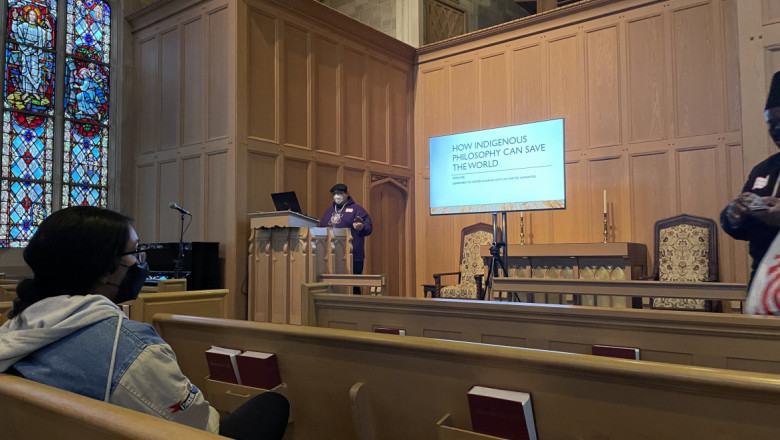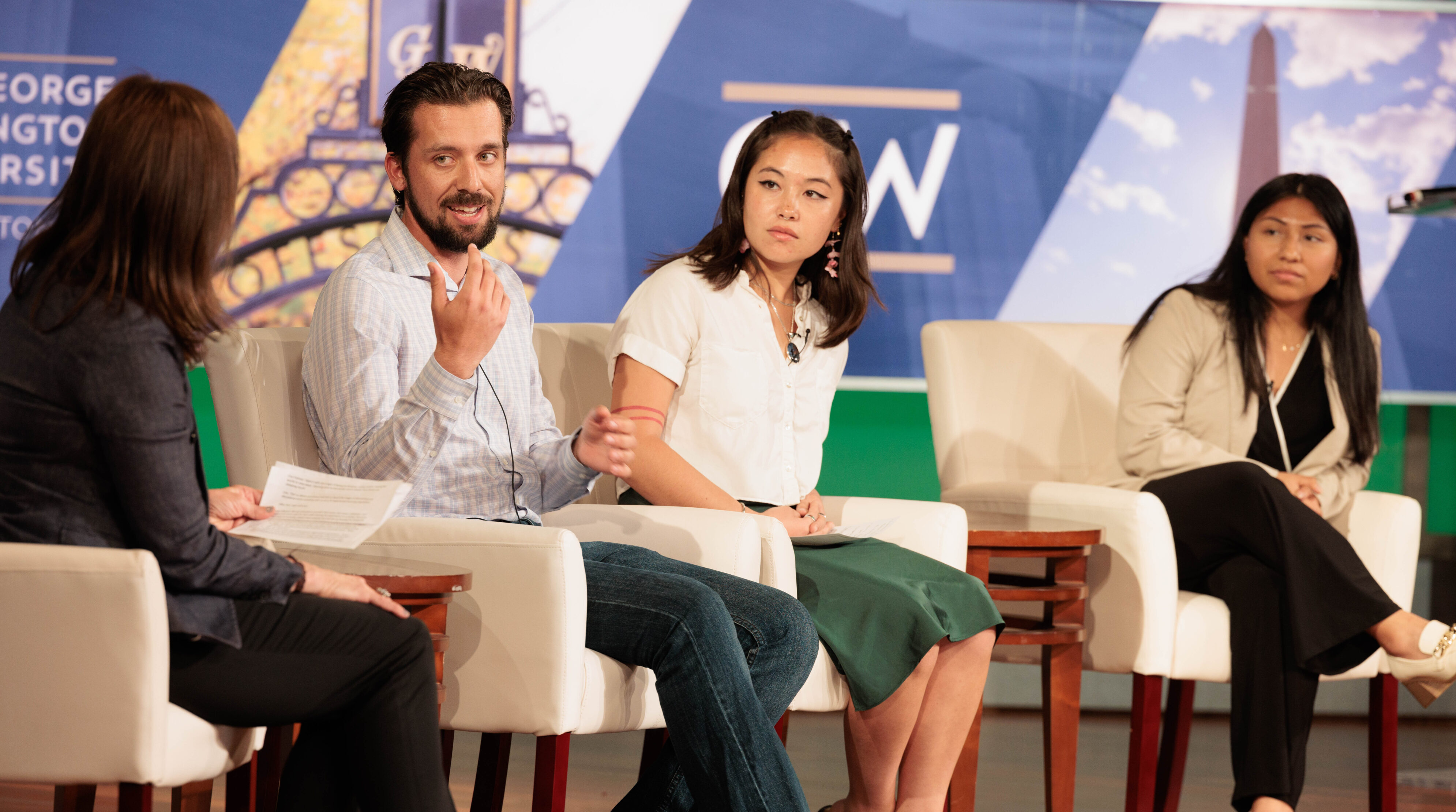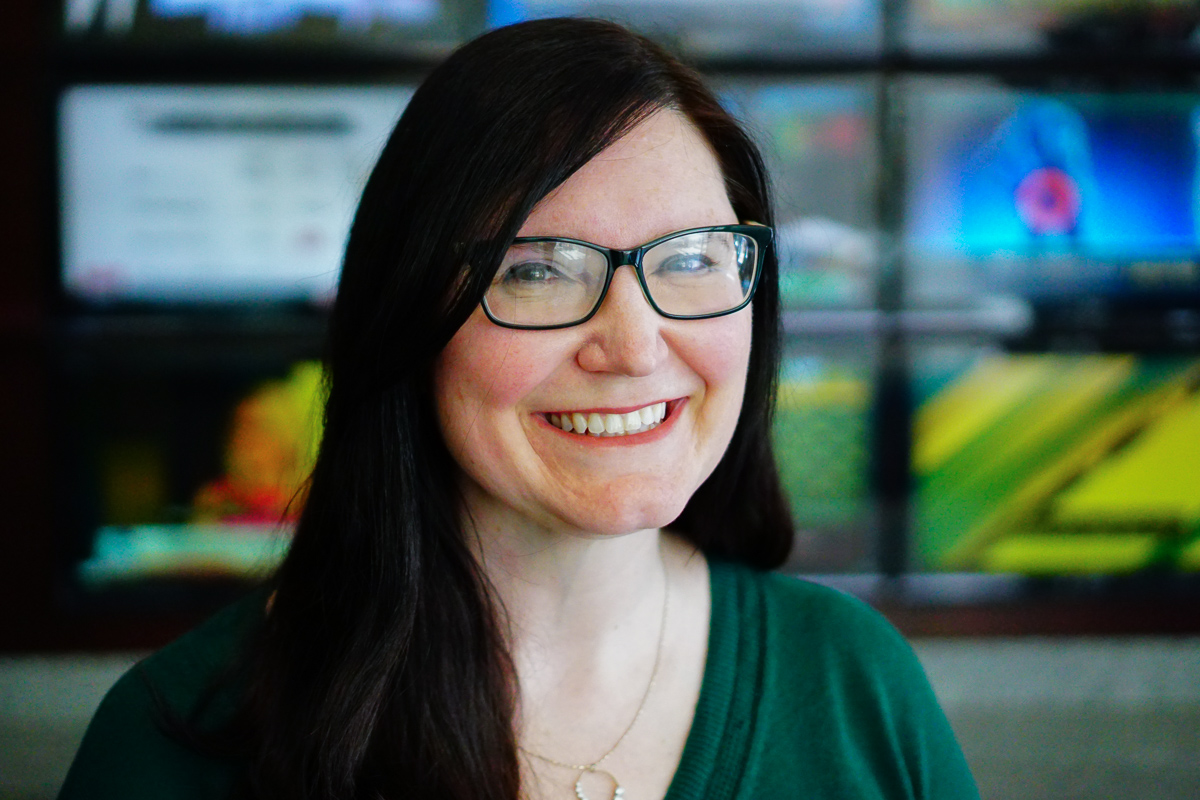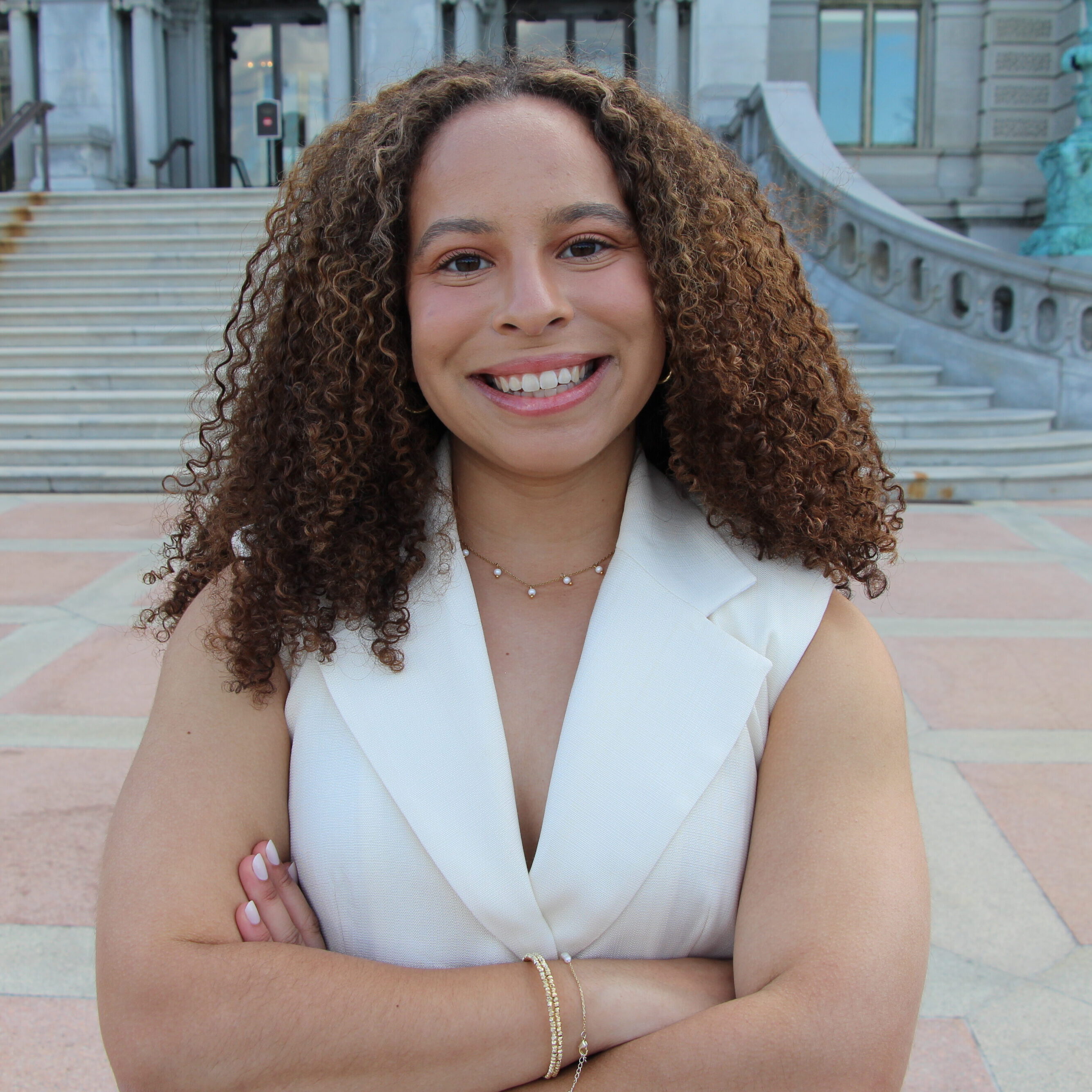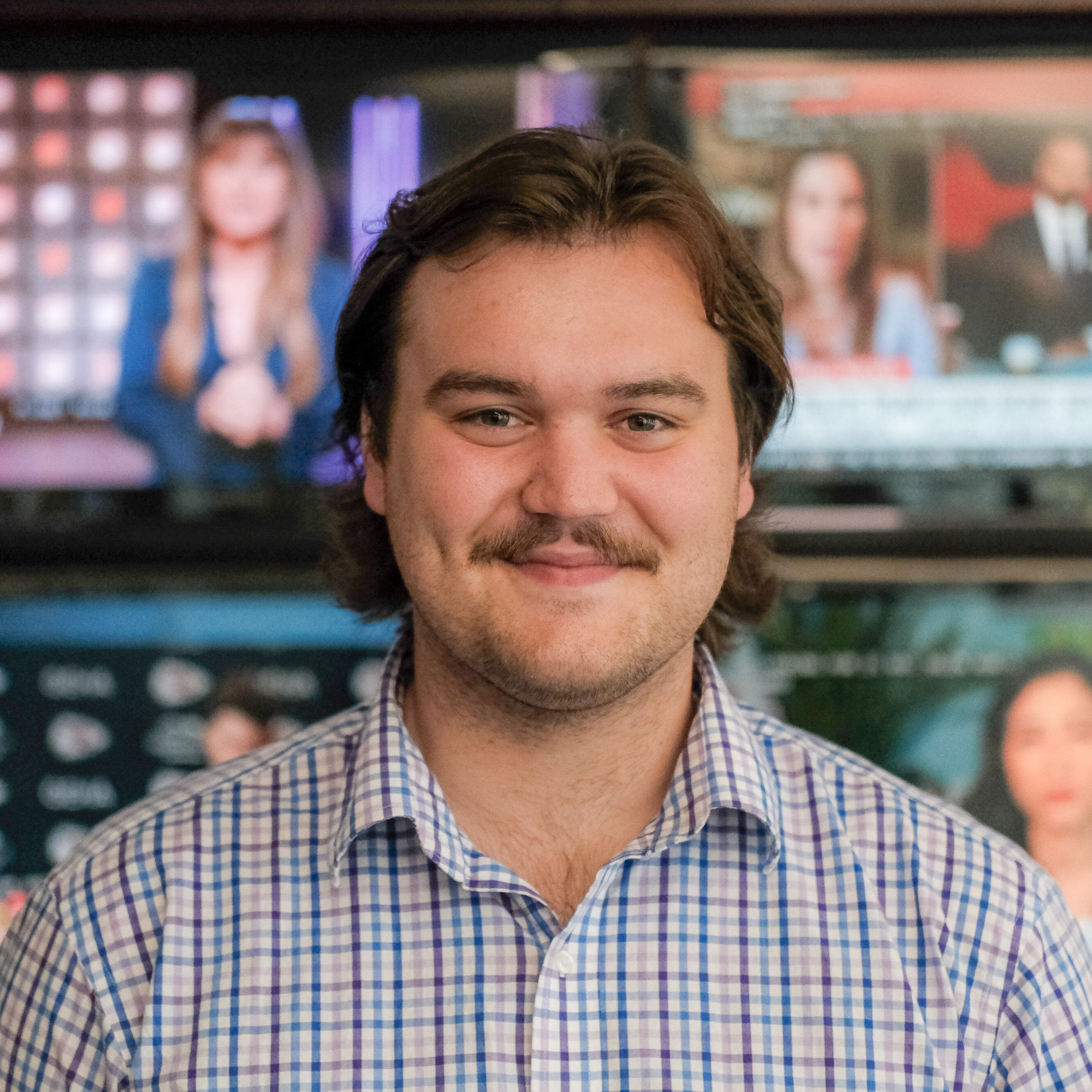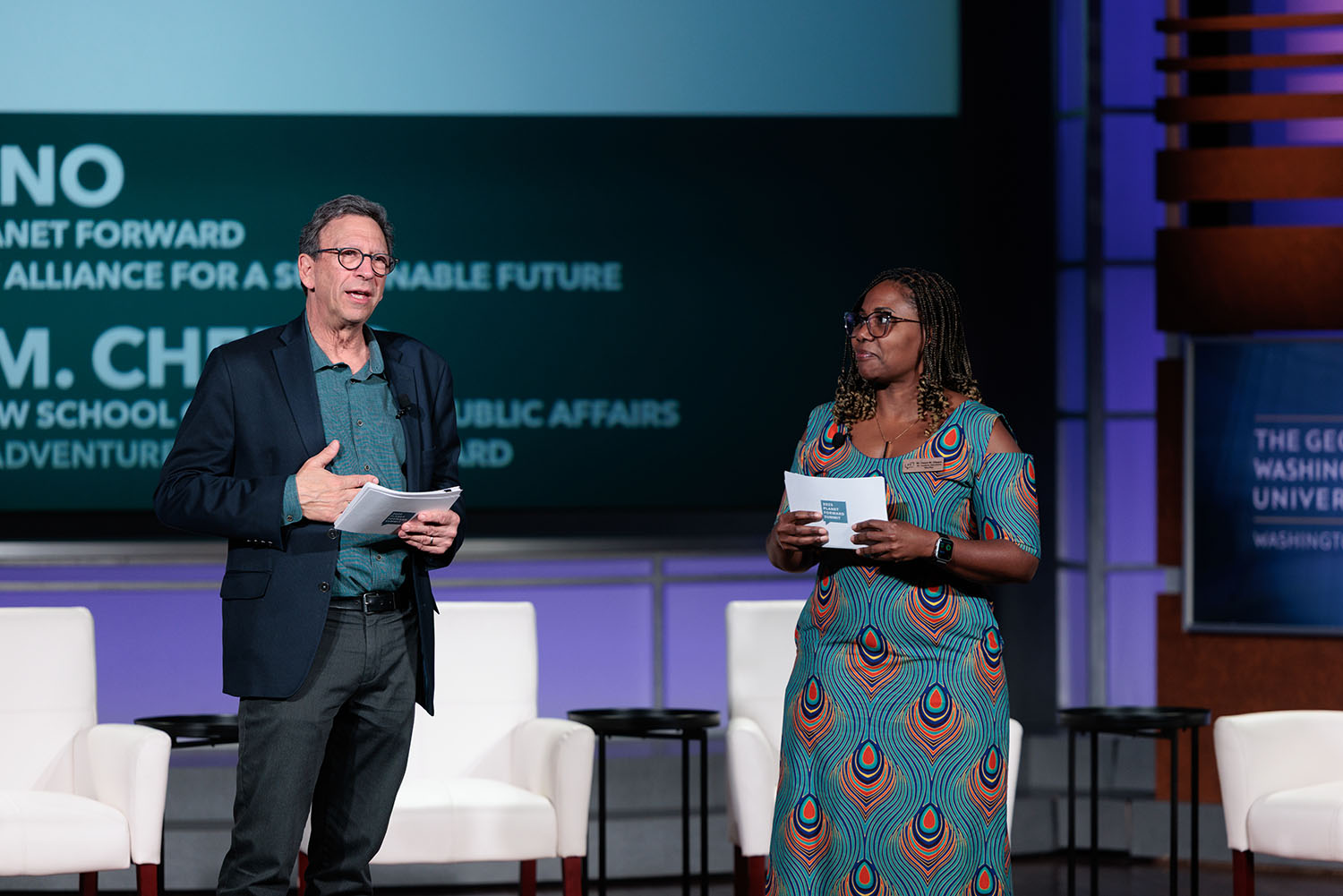By Catherine Odom
Earth Day was cold and rainy this year. But that did not stop the Northwestern University student organizers of Generations of Environmental Justice from hosting an all-night teach-out on April 22 and 23.
Generations of Environmental Justice featured workshops, lectures and discussions about environmental justice issues, including pollution’s health impacts in communities of color and trespassing on Indigenous lands and treaty rights. The student-led event began at 5 p.m. on Earth Day and continued until 7 a.m. the next morning in Alice Millar Chapel and Parkes Hall.
“The goals of the event are to provide people with a general education about environmental justice and the history of the environmental justice movement and how that is distinct from the white environmentalism narrative that is very pervasive,” said NU junior Lucy London.
London is one of the organizers of the event. She is studying performance studies with a minor in environmental policy and culture.
This event was inspired by Project Survival, a student-led environmental event held at Northwestern on January 23, 1970, before the first ever Earth Day. Project Survival was an all-night event that brought together 10,000 people and featured speakers and discussions of crisis level air and water pollution that kicked off the environmental movement.
“I was feeling really inspired by that energy and despaired at how it feels like there’s not really that type of directed energy happening right now towards the climate crisis,” said London.
London added, though, that she hopes the 2022 iteration will be more inclusive than Project Survival, where she said all the speakers were white men.
The opening statements began around 5:30 p.m. with a land acknowledgement from Kadin Mills, a Northwestern sophomore and member of the Ojibwe tribe. The Northwestern campus occupies Ojibwe (Chippewa), Potawatomi and Odawa (Ottawa) lands.
A main focus of this event was to highlight Indigenous voices, which London said have been central to the environmental justice movement long before the mainstream white environmentalist movement began in the mid-20th century.
One breakout session held in the first block of events was called “How Indigenous Philosophy Can Save the World.” Doug Kiel, a Northwestern professor of Native American history and member of the Oneida nation of Wisconsin led this session.
Kiel opened this session with a traditional Oneida opening for meetings and gatherings. The greeting gave thanks for over a dozen aspects of the natural world –– from the sun, to the fish, to the trees.
“European philosophy has ruined the world,” Kiel said simply in his lecture.
He cited the “doctrine of discovery” as the root of European philosophies of ownership and extraction in the Americas that had damaged the environment and Native communities for centuries. He added, though, that Indigenous philosophy may be the antidote.
One example he pointed to was the Seven Generations philosophy, which asks communities to consider how the decisions they make will affect their descendents seven generations into the future.
At the end of the session Kiel asked the audience to form groups and discuss how they felt kinship with the land. When the whole group reconvened, people shared about their favorite places to go to feel connected to nature and how they connected to new places.
This sharing seemed to be at the heart of the event’s original intent: people coming together to share and learn about how they can connect with and contribute to the environmental justice movement.
“This is a very broad and very large movement,” said London. “We need everyone in it in whatever capacity and whatever role they have to fill.”
How do you move the planet forward?
Submit Story
